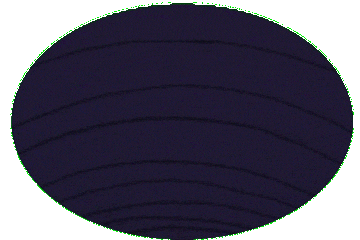Harry Nilsson was friends with members of Monty Python.
George Harrison was a great pal of mine, and one night he came and asked if he could do the "Lumberjack Song" and we said, "Yeah, of course." So he came on stage at City Center, and he did the "Lumberjack Song" as a Mountie, and nobody knew it was George. Harry Nilsson found out George had done it and so the next night Harry is going to do it, but Harry’s pissed as a fart and makes a big display. "It’s Harry Nilsson." He’s waving and everybody’s looking at him like "Fuck off, Harry." He’s just supposed to be in the chorus. At the end of the "Lumberjack Song" everybody would step back and the curtain would come down, but Harry didn’t step back, he stepped forward, the curtain came down, and he fell off the stage into the audience and broke his wrist. Nobody ever recognized it was George, which was really cool and very typically George.
-- Eric Idle[1]
George was wonderful. He came up on stage with us as a Mountie and sang the "Lumberjack Song" impeccably, and I don’t suppose 10 percent of the audience knew he was up there. And then Harry Nilsson came up and tried to take the show over, just one huge inflated ego. He wouldn’t do his Mountie’s jacket up properly, and insisted on wearing dark glasses. A Mountie in dark glasses? And then at the end of the show he started shaking hands with the audience and obviously just wanted as much attention as he could get. I was struck by the extraordinary contrast between George, who did it so beautifully and aesthetically, and Nilsson who was just a sort of egotistical drunk. It doesn’t mean that he wasn’t a nice chap, but under those circumstances he didn’t behave the way he should have done.
-- John Cleese[2]
Monty Python, also known as the Pythons, were a British comedy troupe formed in 1969 consisting of Graham Chapman, John Cleese, Terry Gilliam, Eric Idle, Terry Jones and Michael Palin. The group initially came to prominence in the UK for the sketch comedy television series Monty Python's Flying Circus, which aired on the BBC from 1969 to 1974. Their work then developed into a larger collection that included live shows, films, albums, books, and musicals; their influence on comedy has been compared to the Beatles' influence on music. Their sketch show has been called "an important moment in the evolution of television comedy". Monty Python's Flying Circus was loosely structured as a sketch show, but its innovative stream of consciousness approach and Gilliam's animation skills pushed the boundaries of what was acceptable in style and content. A self-contained comedy unit, the Pythons had creative control that allowed them to experiment with form and content, discarding rules of television comedy. They followed their television work by making the films Monty Python and the Holy Grail (1975), Life of Brian (1979), and The Meaning of Life (1983). Their influence on British comedy has been apparent for years, while it has coloured the work of the early editions of Saturday Night Live through to absurdist trends in television comedy. At the 41st British Academy Film Awards in 1988, Monty Python received the BAFTA Award for Outstanding British Contribution to Cinema. In 1998, they were awarded the AFI Star Award by the American Film Institute. Holy Grail and Life of Brian are frequently ranked on lists of the greatest comedy films. A 2005 poll asked more than 300 comedians, comedy writers, producers, and directors to name the greatest comedians of all time, and half of Monty Python's members made the top 50.
This article uses material from the Wikipedia article "Monty Python", which is released under the Creative Commons Attribution-Share-Alike License 3.0.
- [1] Graham Chapman, Michael Palin, John Cleese, Terry Gilliam, Eric Idle, Terry Jones. Thomas Dunne Books (2003-10-07) "The Pythons: Autobiography by the Pythons"
- [2] ibid

![Monty Python and the Holy Grail 4K SteelBook Blu-ray (UK)[1975] No Dent ShpNxtDy Monty Python and the Holy Grail 4K SteelBook Blu-ray (UK)[1975] No Dent ShpNxtDy](https://i.ebayimg.com/images/g/DR4AAeSwpKlpUdaq/s-l225.jpg)

![Monty Python: The Movies (4 Disc Box Set) [DVD] - DVD 9XVG The Cheap Fast Free Monty Python: The Movies (4 Disc Box Set) [DVD] - DVD 9XVG The Cheap Fast Free](https://i.ebayimg.com/images/g/9PYAAeSwtexpM~5x/s-l225.jpg)
![Monty Python - Monty Python's Flying Circus: The Complete Series 1-4 [New DVD] Monty Python - Monty Python's Flying Circus: The Complete Series 1-4 [New DVD]](https://i.ebayimg.com/images/g/sMcAAeSw7SdoI4t5/s-l225.jpg)







